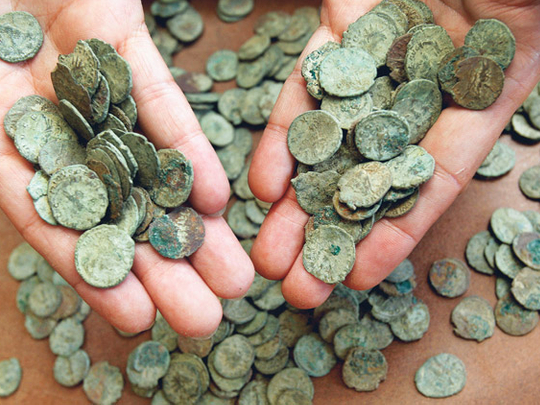
London: Norfolk is the cradle of British civilisation, according to a landmark study.
Primitive humans landed in East Anglia up to 950,000 years ago and settled near what is today the village of Happisburgh.
There were several thousand of them characterised by low foreheads, heavy brows and possible cannibalistic tendencies, and they hunted fish, mammoths, giant elk and deer.
Archaeologists have based the findings on a treasure trove of flint tools and animal and plant remains discovered near the coastal village.
This has forced them to rewrite our island's history.
It had been thought the first humans reached Britain from the continent about 700,000 years ago, settling in Pakefield in Suffolk, when it was significantly warmer than a million years ago.
But the Norfolk find — detailed in the journal Nature — tells us that ancient Britons had the know-how to survive in much harsher climates.
They would have entered Britain via the land bridge that then joined our country to mainland Europe.
British Museum archaeologist Dr Nick Ashton said: "The new flint artefacts are incredibly important because, not only are they much earlier than other finds, but they are associated with a unique array of environmental data that gives a clear picture of the vegetation and climate".
"This demonstrates early humans surviving in a cooler climate than that of the present day," he said.
The estuarine site, 217km north-east of London, lay on an ancient course of the Thames, and was surrounded by a conifer forest.
Mammoths, rhinos, elephants, sabre-toothed cats, horses, elks, deer, voles, and hyenas as big as lions roamed the banks.
The climate was similar to that of modern-day southern Scandinavia. Summer temperatures were like those of modern Britain — but winters were long and harsh, with average temperatures of between 0C and minus 3C.
Fossilised remains of "Norfolk Man" have yet to be unearthed. But scientists said it was likely he was related to Pioneer Man — hailed as Europe's oldest inhabitant when his remains were uncovered in northern Spain in 1994.
Cannibalistic tastes
Pioneer Man, or Homo antecessor, was rumoured to have had a taste for human flesh. But in many other ways, he was like us.
Natural History Museum Professor Chris Stringer said: "This was a species that was fully human in terms of walking upright".
"This was no ape man. They had quite large brains, they were relatively advanced humans but still lacking a number of modern human features. They still had a strong brow and low forehead," he said.
Roman remains: biggest coin find
A British man found a hoard of about 52,000 Roman coins, one of the largest such finds ever in Britain. The British Museum and the Portable Antiquities Scheme announced the find yesterday.
Dave Crisp located the coins in April in a field in southwestern England.
The third-century coins were buried in a jar about 30 centimetres deep and 160 kilograms in weight.












